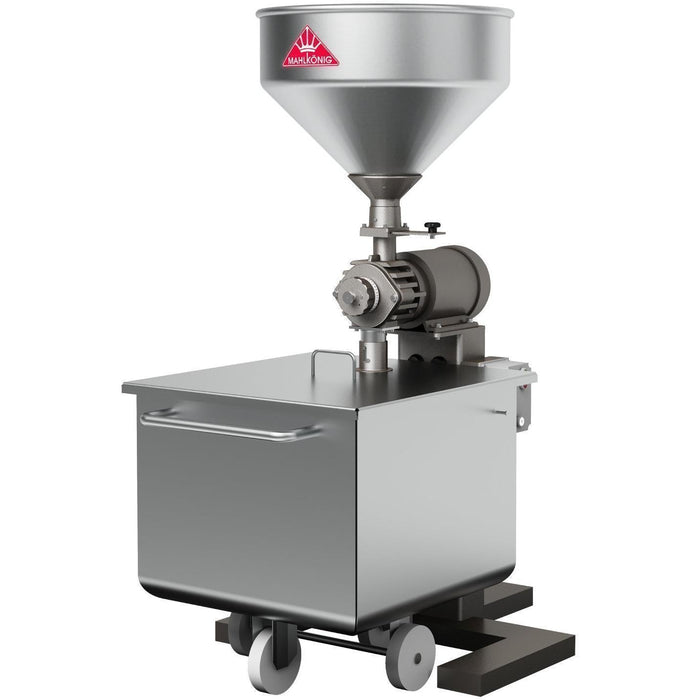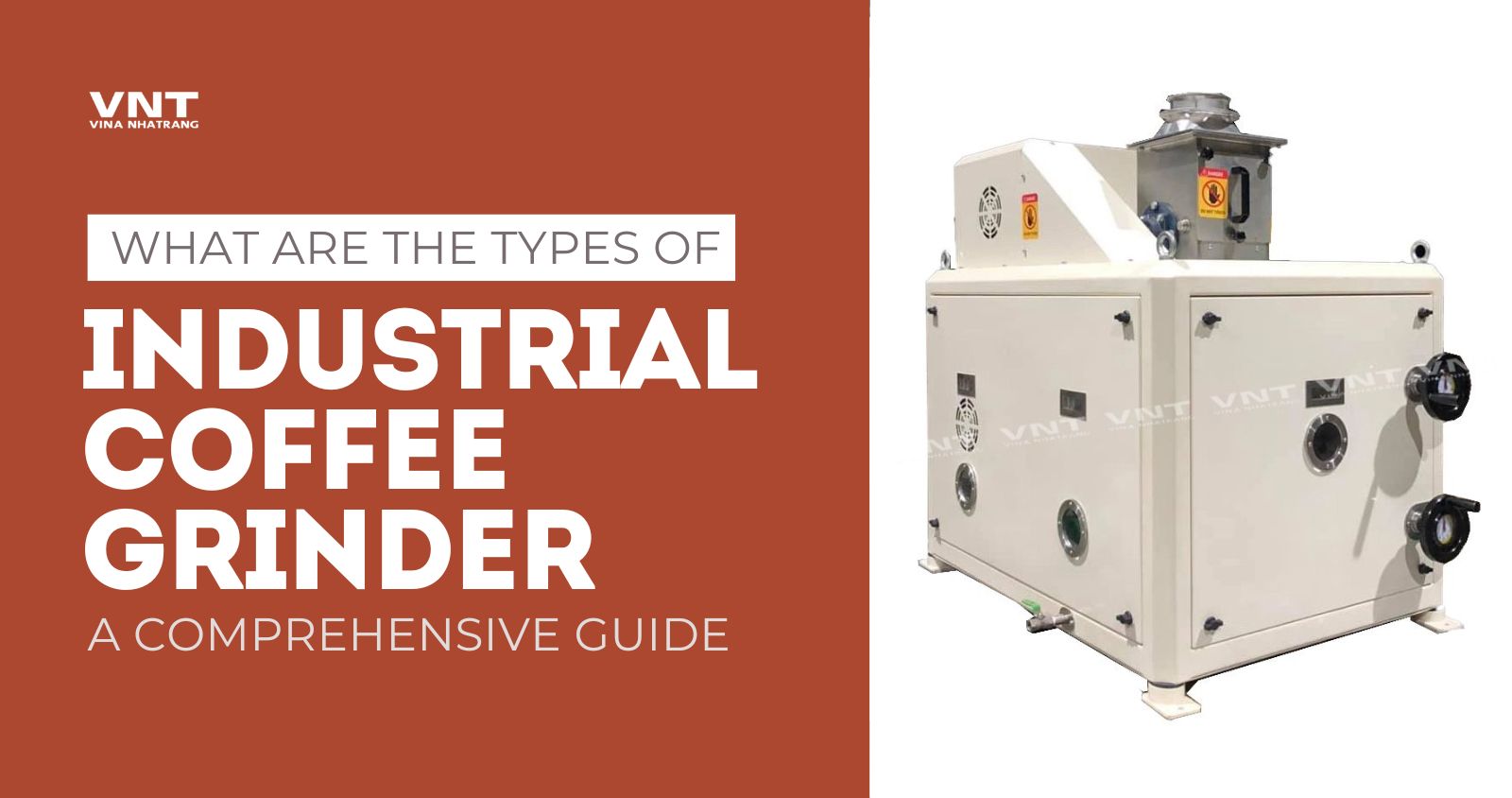Maximize Efficiency with an Industrial Coffee Grinder in Your Business
Maximize Efficiency with an Industrial Coffee Grinder in Your Business
Blog Article
Just How to Select the Perfect Industrial Coffee Mill for Your Organization
Selecting the optimal industrial coffee mill for your organization is a diverse choice that needs careful consideration of a number of essential elements. It is vital to assess your details grinding needs, consisting of the quantity of coffee processed and the wanted work uniformity, as these elements directly influence taste and client contentment. Additionally, comprehending the various sorts of mills offered can considerably influence your functional effectiveness. As you navigate these considerations, one must likewise weigh the ramifications of spending plan and upkeep. What other factors could make or break your selection?
Assess Your Grinding Demands
When selecting a commercial coffee mill, one have to first examine their grinding needs to make sure optimum efficiency and uniformity. This initial evaluation includes recognizing the quantity of coffee to be refined daily, along with the wanted grind size for numerous developing approaches. A high-capacity grinder might be necessary for organizations serving big quantities of coffee, while smaller sized operations might find an extra portable model adequate.
In addition, it is crucial to consider the sorts of coffee beans being utilized, as various beans might need particular grinding methods to achieve the most effective flavor profile. As an example, oily beans may require a grinder designed to take care of such features without overheating or clumping.
Specialized coffee organizations frequently demand exact work sizes to enhance removal and flavor, making it important to pick a mill that can supply consistent outcomes. Reviewing the offered space and electric demands will certainly help in choosing a mill that fits seamlessly right into your functional workflow.
Understand Mill Types
Understanding the numerous sorts of commercial coffee grinders is critical for making a notified option that fulfills specific functional needs. There are mostly two classifications of mills: blade mills and burr grinders.
Blade mills make use of spinning blades to slice the coffee beans, leading to an irregular grind size - Industrial Coffee Grinder. While they might be a lot more budget-friendly, they are commonly not ideal for industrial applications where accuracy is crucial
On the other hand, burr grinders provide an extra uniform work by squashing the beans in between two surface areas. They can be additional categorized into flat burr and conical burr grinders. Apartment burr mills offer a constant work size and are generally preferred for coffee prep work, while cone-shaped burr mills are versatile and can handle a variety of mixture approaches, from coffee to French press.
When choosing a grinder, think about the certain requirements of your business, consisting of desired work uniformity, production quantity, and the kinds of coffee drinks you plan to offer - Industrial Coffee Grinder. Each grinder type has its advantages and limitations, so recognizing these nuances enables educated decision-making that lines up with operational goals
Evaluate Grind Dimension Uniformity
Achieving grind dimension consistency is crucial for generating top quality coffee, as variants in bit size can considerably impact removal and taste. When picking an industrial coffee mill, it is important to examine just how well the machine maintains harmony in grind dimension throughout various sets. Inconsistent grind dimensions can lead to unequal removal, resulting in a mug that may taste weak or extremely bitter.
To analyze grind dimension uniformity, consider grinders with features such as adjustable grind setups and top quality burrs. Burr mills, in specific, master generating uniform particle dimensions compared to blade grinders. The material and shape of the burrs play a vital function, with stainless steel and ceramic options offering sturdiness and accuracy.

Take Into Consideration Manufacturing Capability
In the busy world of coffee manufacturing, considering manufacturing capability is critical for services intending to meet demand without giving up high quality. The production ability of a commercial coffee mill directly affects a firm's capacity to meet orders effectively, take care of stock, and reply to fluctuating market trends.
When evaluating production ability, it is necessary to assess the grinder's result price, typically gauged in extra pounds per hour. This measurement should line up with your organization's predicted sales volume and development targets. A coffee shop with a high turn over might need a mill that can process several hundred extra pounds daily, while a smaller sized operation may be adequate with a lower ability model.
Furthermore, take into consideration the kind of coffee being processed. Different beans and blends may influence grinding rate and efficiency, requiring a mill with the ability of handling diverse their website manufacturing needs. It's additionally worth considering the grinder's capacity to maintain constant top quality under high result problems, as any fluctuations can affect the final product.
Inevitably, choosing a mill that matches your company's production ability will certainly guarantee you remain affordable and receptive to client expectations.

Budget Plan and Upkeep Variables
When evaluating the best commercial coffee maintenance, mill and budget plan elements play a considerable function in the overall decision-making process,. An initial investment in discover this info here a premium grinder can produce long-term advantages, yet it's important to develop a clear spending plan that lines up with your business's operational needs. Think about both the acquisition rate and potential operational expenses, such as power intake and substitute components.
Maintenance is another important facet that can influence your budget plan. Industrial coffee mills call for routine maintenance to guarantee optimum efficiency and long life. Evaluate the producer's referrals for maintenance, consisting of cleansing schedules and components substitute, as these will impact long-lasting operational expenses. Additionally, think about the schedule of solution and support, as dependable aid can reduce downtime and repair work expenditures.

Purchasing a mill that is resilient yet easy to maintain can save money with time. While lower-priced choices may be alluring, they may incur greater upkeep costs and lowered effectiveness. Eventually, balancing first costs with long-term upkeep and operational efficiency will certainly direct you to the most effective choice for your company's coffee grinding requirements.
Conclusion
Selecting the suitable commercial coffee grinder demands a comprehensive assessment of grinding demands, mill types, grind size uniformity, production capacity, and budgetary factors to consider. A well-chosen grinder not only boosts the top quality of the coffee generated but also contributes to the general success and profitability of the enterprise.
Specialized coffee businesses frequently demand exact grind sizes to enhance removal and flavor, making it vital to choose a mill that can supply consistent outcomes. Apartment burr straight from the source mills use a constant grind dimension and are generally favored for coffee prep work, while conical burr grinders are versatile and can manage an array of brew approaches, from espresso to French press.
When selecting a commercial coffee mill, it is vital to examine exactly how well the equipment preserves uniformity in work size across different batches. Burr grinders, in certain, stand out in generating consistent fragment sizes contrasted to blade mills.Picking the optimal commercial coffee mill demands a complete analysis of grinding needs, grinder kinds, grind size uniformity, manufacturing ability, and financial factors to consider.
Report this page